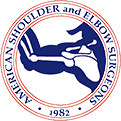Jason E. Hsu, MD, Fellowship Director
Jonah Hebert-Davies, MD
Albert O. Gee, MD
Frederick A. Matsen, III, MD
Corey J. Schiffman, MD
Winston J. Warme, MD
University of Washington Medical Center
Department of Orthopaedics and Sports Medicine
1959 NE Pacific Street, Room BB1015, Box 356500, Seattle, WA 98195
Phone: 206-543-3690
Fax: 206-685-3139
E-mail: fwesterb@uw.edu
Website: www.orthop.washington.edu
All application materials should be submitted directly through the SF Match website: SF Match – Orthopaedic Shoulder & Elbow
Application Deadline Date: November 1, 2022
Number of Fellows: 2 fellows per year
Fellowship Description:
The Shoulder and Elbow Service at the University of Washington Medical Center is dedicated to the highest quality patient care, teaching, and research in service of patients with conditions of the shoulder and elbow that compromise their comfort and function.
Please visit our shoulder fellowship website (https://orthop.washington.edu/education/shoulder-elbow-fellowship.html) for a detailed description of our program as well as our blog of current information on the shoulder: http://shoulderarthritis.blogspot.com/
Faculty
We invite you to get to know our primary faculty:
Albert Gee: https://orthop.washington.edu/faculty-profiles/albert-o-gee-md.html
Jason Hsu: https://orthop.washington.edu/faculty-profiles/jason-e-hsu-md.html
Frederick Matsen: https://orthop.washington.edu/faculty-profiles/frederick-a-matsen-iii-md.html
Winston Warme: https://orthop.washington.edu/faculty-profiles/winston-j-warme-md.html
Clinical
We strive to provide a comprehensive, hands on surgical experience for each of our fellows. Our patients come from a wide and diverse geographical area, predominantly the states of Washington, Montana, Idaho, Wyoming, Oregon and Alaska. This patient base provides for a broad clinical experience, with approximately 2,000 shoulder and elbow surgeries per year of which 39% are arthroscopic procedures (in both the beach chair and lateral positions), 28% are arthroplasties, 11% are for fractures, and 17% are for a variety of other shoulder and elbow problems. Our Fellows are involved in a large volume of primary shoulder arthroplasty and arthroscopic surgeries, yet by the end of the year are very adept and accustomed to handling the most complex of revision cases. Our Fellows learn not only how to perform the most effective, evidence-based surgical procedures, but also how to think about and manage each individual patient. Our weekly experience includes clinic, pre-op conference, the operating room, post-op conference, and research. Cadaver and dry laboratories are held to allow the Fellows to practice arthroscopic and open reconstructive procedures in a quality laboratory setting.
Research
We are actively engaged in a wide variety of research focused on developing more effective methods for evaluating and managing the disabling conditions of our patients. Our research assistants help maintain a number of robust databases including a prospective primary shoulder arthroplasty database, a revision shoulder arthroplasty database, and a repository of Propionibacterium isolates used to study methods of prevention and treatment of periprosthetic infection. Our fellows play a critical role in analyzing and interpreting the information from these databases in order to transform patient care.
The Experience
Our fellows have faculty appointments as acting instructors at the University of Washington Medical Center. The one-year in-depth clinical experience is initially closely supervised, but progresses to increasingly independent decision-making and resident teaching. The fellows are expected to participate actively in the teaching of medical students and residents, as well as in continuing medical education opportunities. The weekly experience includes clinic, the operating room, and research. Fellows participate in several cadaver arthroscopy labs throughout the year as well as journal club, resident anatomy lab, lectures, and other scholarly activities. Fellows are expected to complete and publish several laboratory and/or clinical research projects during the year.
Qualifications
The fellowship candidate must have completed a certified residency program in orthopaedics at the time the fellowship is started. The candidate should have a strong commitment to excellence in clinical care as well as a desire to become a future leader in our field and a member of the American Shoulder and Elbow Surgeons.
Conclusion
We are most proud of the accomplishments of our past fellows, now numbering over 50. They have taken positions across the nation and around the world. It is a pleasure to watch them continue to grow and develop the future of our field.


